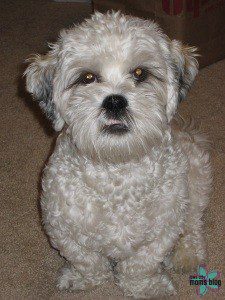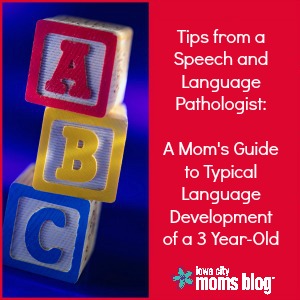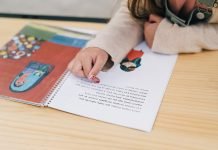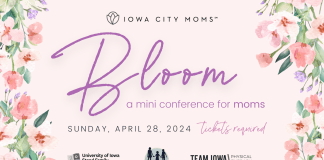A few weeks back, I wrote my first post in what I am considering to be a brief, hopefully helpful “series” of child speech and language development. For more information on what you should see in your two-year-old, please check that post out here. For those of you with slightly older children (or for those of you who plan ahead), consider reading on!
Speech Sound Development
By the age of three, your child will likely have developed the following sounds:
- p, b, m, n, w, h, k, g, t, d, ng
Between the ages of three and four, your child will possibly develop (or begin to develop) the following:
- f,y, r, l, s, ch, sh, z
Just like I said in my previous post, it is probable that your child will make errors, but a typical kid around the age of three will be able to produce the FIRST list of sounds in some context. The second list consists of sounds that they may develop, but your child is NOT DELAYED if you have not heard him/her produce these. Some children start to use these a bit later! (Or in the case of /r/…MUCH later!)
 It is expected that your 36-month-old will be about 50-75% intelligible, meaning that you can understand around 50-75% of what he/she says.
It is expected that your 36-month-old will be about 50-75% intelligible, meaning that you can understand around 50-75% of what he/she says.
It is also most likely that, by the age of three, your child will mark the endings of words (e.g. “dog” vs. “dah”). If you child continues to leave off the ends of some words, consider an evaluation with an SLP. You may understand what the “dah” is, but this won’t be true for everyone! (Check out my cute “dah”!)
Comprehension
By the age of three, your child should understand/do the following:
- comprehend concepts including on, off, under, in, together, etc.
- comprehend size (e.g. big/little) and simple number concepts (e.g. one vs. two)
- answer basic wh-questions
- follow two-step directions
- follow directions that involve adjectives or adverbs (e.g. Give me the blue block.)
- point to objects when described (e.g. What do you wear on your feet?)
- comprehend basic “Can you…?” questions
Expression
By the age of three, your child will likely:
- have at least 1000 words
- increase use of wh-questions
- begin to use language for make-believe and jokes
- attempt to “fix” language when the listener doesn’t understand
- use adjectives including color and size
- use the following pronouns: I, it, my, me, mine, you, your, she, he, yours, we
-
mark regular plural–s
-
use -ing when talking about verbs (e.g. boy running)
- use possessive -s (e.g. girl’s)
- use past tense -ed
*Portions of the above lists come from Linguisystems: Guide to Communication Milestones, 2012 Edition.
There are a couple of red flags I do want to mention. If strangers have great difficulty understanding your child, your kiddo doesn’t use simple sentences, or your three-year-old seems to have lost language or does not show interest in communication, please consider seeking the assistance of a speech-language pathologist. SLPs would love to help!












Is echolalia normal in 3 year old children still developing their speech and language skills?
I would say it depends on the degree of echolalia. Does your child ask what something is and then repeat this “new” word/phrase to aid in learning? This could be normal if it happens from time to time. Generally I would say that frequent echolalia is very typical in children up to two, especially when the child does not yet understand the nature of questions (and repeats them), etc. Did your child just turn three? And was he/she a late talker?
He’s 3 years and 4 1/2 months and was a late talker but he caught right up and “graduated” last winter from Grantwood AEA’s services. We’ve just been noticing more that he will repeat what people are saying around him, even if they’re not talking directly to him, and sometimes answer back (often happens at the grocery store). He also has quite a memory for music lyrics and movie/book lines and will just pop those out at random. I’m wondering if it’s nothing to worry about still at this age or I should be concerned again.
To be honest, I don’t like to hear that kiddos of his age are reciting movie quotes and books at random. It is possible that he doesn’t have the expressive language abilities to say what he wants but that he, on the other hand, realizes that the quote from the book fits that situation perfectly. Something like that is at least echolalia that is meaningful. That said, I would recommend an evaluation to probe things a bit more.
Hello! I was wondering if immediate echolalia is normal for my 2 yr 9 mo old. She started the repeating around 2 yrs 4 months and has been in speech therapy since 2 years 1 month. She mostly seems to repeat when she doesn’t understand a question or if I ask if she wants milk, she will say “want milk!” Instead of “yes”. Also if someone says “hi Mackenzie” she will say back “hi Mackenzie” instead of the other person’s name. Sometimes she will repeat back instructions given to her such as “take it to the table” but she always does the action while repeating it. She has tons of spontaneous speech, she is extremely imaginative, and knows how to request things she wants. She is also social with other children. I feel her speech started later than other children, as she did not start putting two words together until 2 years 3 months. She also knows how to answer questions with spontaneous answers, such as “what do you want for dinner?” she will answer “macaroni!” Or “where is the fork?” She will say “on the plate”.